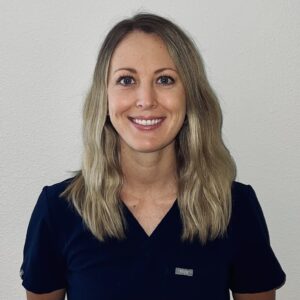What Does a Dermatologist Do During a Full Body Exam?
A full-body skin exam is one of the most important tools in dermatology to monitor and maintain the health of your skin. This comprehensive evaluation can detect early signs of skin cancer, identify unusual growths, and address other dermatological concerns. For many, the prospect of a full-body skin exam may seem intimidating, but it is a quick, straightforward, and potentially life-saving procedure.
At Divine Dermatology, we prioritize patient comfort and education, ensuring every exam is conducted with professionalism, care, and sensitivity. In this post, we’ll walk you through what to expect during a full-body skin exam and why it’s essential for your overall health.
Why Are Full-Body Skin Exams Important?
Your skin is your body’s largest organ, and it serves as the first line of defense against environmental factors like UV radiation, pollution, and infections. However, it’s also prone to various conditions, including skin cancer—the most common cancer in the United States.
The statistics underscore the importance of regular exams:
- 1 in 5 Americans will develop skin cancer by the age of 70. (American Academy of Dermatology)
- Early detection of melanoma, the deadliest form of skin cancer, has a 99% five-year survival rate. (Skin Cancer Foundation)
- More than *9,500 people in the U.S. are diagnosed with skin cancer every day. (American Cancer Society)
A full-body skin exam is a proactive measure to catch skin cancers and other abnormalities early. At Divine Dermatology, we’ve performed countless exams, empowering our patients to take charge of their skin health.
What Happens During a Full-Body Skin Exam?
A full-body skin exam is a systematic evaluation of your skin from head to toe. The process typically takes about 15–30 minutes, depending on the complexity of your case and the questions you may have. Here’s a breakdown of what to expect:
1. Medical History Review
Your dermatologist will begin by discussing your medical history. At Divine Dermatology, we believe this is a critical step, as it helps us understand your risk factors and concerns. Expect questions like:
- Do you have a personal or family history of skin cancer?
- Have you noticed any new or changing moles, growths, or lesions?
- Do you experience frequent sunburns or use tanning beds?
- What medications or supplements are you currently taking?
This discussion allows us to tailor the exam to your unique needs and focus on areas that may require extra attention.
2. Preparing for the Exam
Once your history is reviewed, you’ll be guided to a private, comfortable exam room. You’ll be asked to change into a medical gown, leaving undergarments on if preferred. At Divine Dermatology, we take patient privacy seriously and ensure that you feel at ease throughout the process.
- What should you bring? Any skincare products you use, a list of medications, and details about concerning spots or growths are helpful.
- What should you avoid before the exam? Avoid wearing makeup, nail polish, or heavy lotions, as these can obscure your skin’s natural appearance.
3. The Examination
The dermatologist will examine your skin systematically, starting at your scalp and working their way down to your feet. Using a bright light and magnification tools, they will inspect your skin for:
- Moles: Assessing asymmetry, border irregularities, color variations, diameter, and evolution (the “ABCDEs” of melanoma detection).
- Lesions: Identifying unusual growths, rashes, or discolorations.
- Sun Damage: Examining areas like the face, neck, and hands, which are most exposed to UV rays.
- Nails and Scalp: Checking for abnormalities like fungal infections, psoriasis, or scalp lesions.
Key areas of focus:
- Scalp and behind the ears
- Face, neck, and eyelids
- Chest and abdomen
- Back and shoulders
- Arms, hands, and nails
- Legs, feet, and soles
Your dermatologist may use a dermatoscope, a handheld magnifying device with light, to closely examine any suspicious spots.
4. Addressing Concerns
We always encourage our patients to voice their concerns during the exam. Whether it’s a mole that looks unusual, a patch of dry skin, or a question about skincare routines, this is the time to discuss it. At Divine Dermatology we prioritize patient education, ensuring you leave with a clear understanding of your skin’s condition.
5. Documenting and Monitoring
If any spots or growths are of concern, your dermatologist may:
- Take Photographs: To monitor changes over time.
- Perform a Biopsy: If a lesion looks suspicious, a small sample of skin may be taken for further analysis.
- Schedule Follow-Ups: Depending on your risk factors, we may recommend annual or biannual exams.
At Divine Dermatology, we use advanced tools to document findings, enabling accurate tracking of changes in your skin over time.
What to Expect After the Exam
Once the exam is complete, your dermatologist will review their findings with you. If no issues are detected, you’ll leave with peace of mind and tips for maintaining healthy skin. If further action is needed—such as a biopsy or treatment plan—you’ll receive detailed instructions on next steps.
We’re here to guide you every step of the way, ensuring you feel confident and informed about your skin’s health.
How to Prepare for a Full-Body Skin Exam
To make the most of your appointment, follow these tips:
- Examine Your Skin: Before your visit, take note of any spots, moles, or growths that concern you.
- Avoid Cosmetic Products: Skip makeup, nail polish, and heavy lotions on the day of your exam.
- Be Honest: Share your medical history, sun exposure habits, and any recent skin changes.
- Wear Comfortable Clothing: Easy-to-remove clothing can make the process smoother.
Common Questions About Full-Body Skin Exams
Will I Feel Exposed?
Your comfort is our top priority. At Divine Dermatology, we conduct exams with utmost professionalism and ensure that only one area of your body is exposed at a time.
How Often Should I Have a Full-Body Skin Exam?
For most people, annual exams are sufficient. However, if you have a personal or family history of skin cancer, multiple moles, or significant sun damage, we may recommend more frequent visits.
Are Biopsies Painful?
Biopsies are typically quick and painless. A small area of skin is numbed with a local anesthetic before the sample is taken.
The Role of Divine Dermatology in Skin Health
At Divine Dermatology, our approach to full-body skin exams combines medical expertise with a focus on patient care. Here’s what sets us apart:
- Experienced Team: Our board-certified dermatologists have performed thousands of skin exams, ensuring thorough and accurate evaluations.
- State-of-the-Art Tools: From digital dermoscopy to advanced imaging, we use the latest technology to detect even the smallest abnormalities.
- Patient-Centered Care: We take the time to educate and involve you in every step of the process.
- Holistic Approach: Beyond the exam, we offer tailored advice on skincare routines, sun protection, and lifestyle adjustments to maintain healthy skin.
Why Regular Skin Exams Are a Lifesaving Habit
Detecting skin cancer early dramatically increases survival rates. A full-body skin exam is a small investment of your time that can have a significant impact on your long-term health. At Divine Dermatology, we’ve seen how these exams can save lives, and we’re here to provide the expert care you deserve.
Conclusion
A full-body skin exam is a crucial step in maintaining your skin’s health and catching potential issues early. At Divine Dermatology, PLLC we’re committed to making this process comfortable, thorough, and educational. Whether it’s your first exam or part of your ongoing skincare routine, we’ll ensure you feel empowered and informed every step of the way.
Take control of your skin health today—schedule your full-body skin exam with Divine Dermatology. Your skin deserves the best care, and we’re here to provide it.
Embrace your skincare and rejuvenation, visit Divine Dermatology for expert skin checks, and your skin will thank you for years to come.
Disclaimer: This article is intended for informational purposes only and should not be construed as medical advice. Always consult with a qualified healthcare provider for medical advice and treatment.




